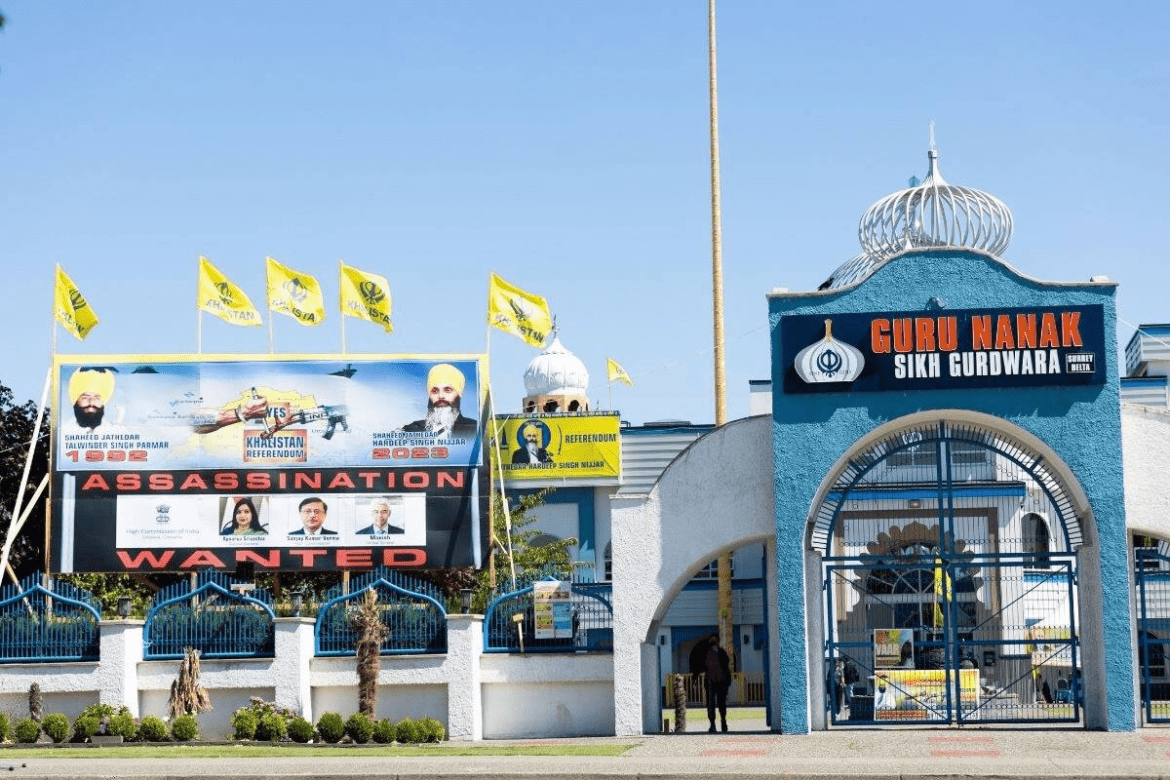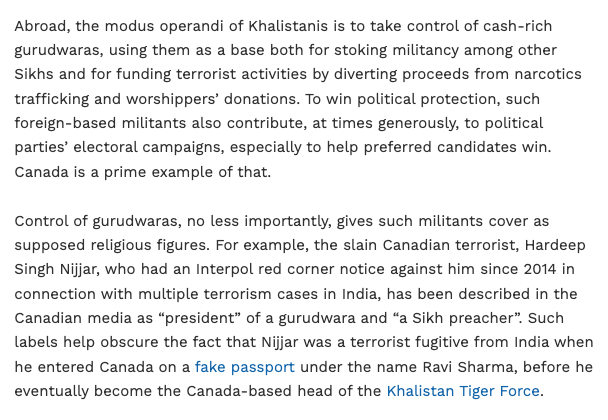AI Generated Summary
- By doing so, the Sikh diaspora can ensure that Gurdwaras remain beacons of hope, peace, and service, true to the vision of the Sikh Gurus, and not be diverted by the agendas of a few.
- The sanctity of Gurdwaras, which are meant to be places of worship, peace, and community service in line with the teachings of Guru Nanak Dev Ji and subsequent Sikh Gurus, is facing an unsettling challenge.
- It is imperative for the community to engage in open dialogue, reinforce the original teachings of Sikhism, and take decisive action to preserve the integrity of their places of worship.
The sanctity of Gurdwaras, which are meant to be places of worship, peace, and community service in line with the teachings of Guru Nanak Dev Ji and subsequent Sikh Gurus, is facing an unsettling challenge. Historically, Gurdwaras have served not just as religious centers but also as community hubs where the needy find solace, the hungry find food, and the community comes together to support each other. However, recent developments across the UK, Canada, and the US indicate a troubling shift, where a minority of these sacred spaces are being co-opted by fringe elements with political and extremist agendas, particularly relating to Khalistan extremism. This trend not only contradicts the foundational principles of Sikhi but also risks the core mission of Gurdwaras: to serve and uplift the community.
If this isn't 'baedbi,' then what is?
— Navdeep Singh (@Navdeep_UK) June 21, 2024
A larger-than-life portrait of Hardeep Singh Nijjar was placed behind Sri Guru Granth Sahib Ji in Surrey
The Gurdwara resounded with chants of 'Khalistan Zindabad' & violent speeches.
They have transformed the 'Guru Ghar' into a banquet hall pic.twitter.com/AUOi95IAoH
The transformation of some Gurdwaras into arenas of politics and extremism is a far cry from the vision of their founders. The Sikh Gurus advocated for equality, justice, and service to humanity, principles that are being overshadowed by the pursuits of a few who seek to exploit these religious institutions for political gain and to foster separatist sentiments. Instances have been reported where Gurdwara management committees have been overtaken by those with a vested interest in promoting Khalistan extremism. This hijacking diverts resources and efforts from community service and development towards supporting a political cause that is not universally endorsed by the Sikh diaspora.
A concerning aspect of this phenomenon is the manipulation of young individuals from Punjab, who arrive in countries like Canada under the pretext of employment opportunities but find themselves ensnared in separatist movements. According to a Times of India report, these youths, brought over as plumbers, truck drivers, or religious workers, are soon indoctrinated into organizing anti-India protests and participating in radical-religious congregations. This manipulation not only derails their prospects but also entangles them in activities that could have legal and social repercussions.
I feel regrettably sad for disciples who visit a Gurdwara seeking peace & enlightenment. Imagine going to a Gurdwara to spend some time in tranquillity only to witness this chaos instead. Putting up 5 #Khalistani flags to draw parallels with the Panj Pyare? What's this stupidity? pic.twitter.com/JjzyJhBXap
— Navdeep Singh (@Navdeep_UK) April 30, 2024
The Sikh community, both within these countries and globally, stands at a critical juncture. It must address the challenge of reclaiming the spiritual and communal essence of Gurdwaras while resisting the co-option of these spaces by extremist factions. The focus should return to community development, social welfare, and upholding the universal values of Sikhi. By doing so, the Sikh diaspora can ensure that Gurdwaras remain beacons of hope, peace, and service, true to the vision of the Sikh Gurus, and not be diverted by the agendas of a few. It is imperative for the community to engage in open dialogue, reinforce the original teachings of Sikhism, and take decisive action to preserve the integrity of their places of worship. Only through collective effort and a return to core values can the Sikh community navigate through these challenges and ensure that Gurdwaras continue to serve their rightful purpose.
The opinions expressed in this article are those of the author. They do not purport to reflect the opinions or views of Khalsa Vox or its members.





